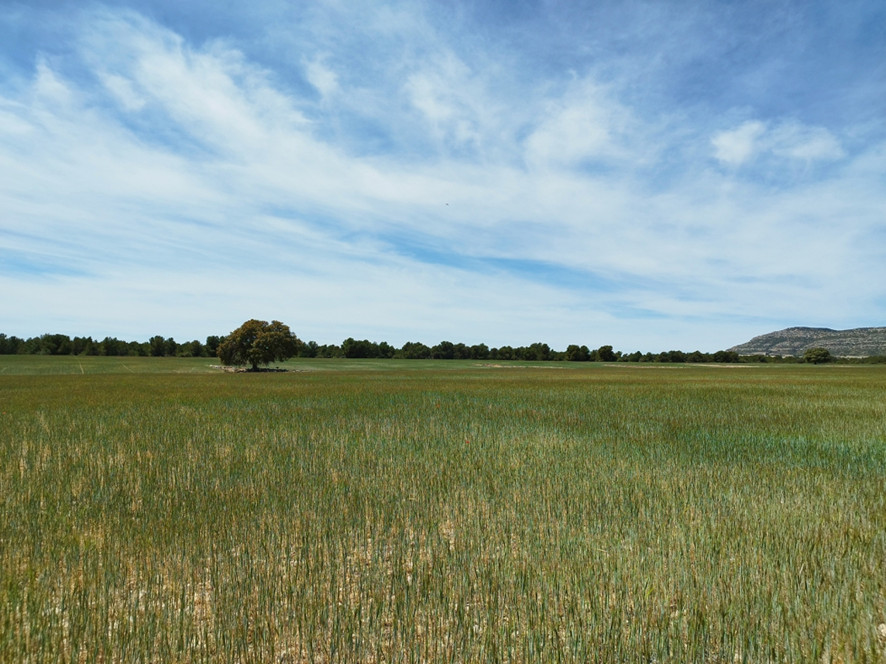Institutional declaration of the 8th World Congress on Conservation Agriculture

Andalusia develops tools and actions for all European countries that enhance the mitigating capacity of the soil as a carbon sink
2021-05-05
Life Resilience and Life Agromitiga create synergies and share experiences
2021-10-01Institutional declaration of the 8th World Congress on Conservation Agriculture
The 8th World Congress on Conservation Agriculture (8WCCA) was held virtually on 21- 23 June 2021 in Bern, Switzerland and attended by 783 participants from farmer associations, international organizations, scientific institutions, private sector, non-governmental and civil society organizations, from more than 108 countries, from the developed and developing world. The main objective of the 8WCCA was to celebrate the Conservation Agriculture Community’s success as the driver of the biggest farming revolution to have occurred in our lifetimes, and to build on this and boost the quality and speed of this transformation globally towards sustainable agriculture in support of the Sustainable Development and the international climate goals.
The following is the final declaration of this important global event within the framework of the LIFE Agromitiga project, which undoubtedly brings together the knowledge and experience accumulated to date around the world, and which will mark the future of Conservation Agriculture in the coming years.
“"Naturally grown soil is a limited, scarce, non-renewable resource. It is the base for the production of healthy food and native wood, a buffer element for the global hydrological cycle, filter substrate for clean drinking water, global carbon store, habitat of a huge biodiversity and element of attractive landscapes. At the interface of atmosphere, hydrosphere and lithosphere, the soil fulfills indispensable ecological, economic and social functions. The future of the world’s food security requires soils which are unpolluted, of stable structure and productive, in short – a sustainable soil use.
Conservation Agriculture (CA) and its many locally adapted variants offer the best means of using soils for productive farming while enhancing their ability to fulfil their vital societal and planetary functions.
Accumulated positive experiences and scientific knowledge about Conservation Agriculture (CA) are leading to its rapid adoption world-wide. Farmers now apply CA on over 200 million hectares (15% of the word’s annual cropland area) in over 100 countries across a diverse range of agro-ecological zones and farm sizes, in all continents but particularly in Africa, Asia and Europe. It has enhanced farm production and reduced costs while conserving and enhancing the natural resources of land, water, biodiversity and climate.
In contrast, conventional tillage practices are not ecologically sustainable since they degrade land by destroying soil structure and biodiversity, reduce soil organic matter content, cause soil compaction, increase run-off and erosion and contaminate water bodies with pollutants and sediments, threatening land productivity, environment and human health. In addition, they produce unacceptable levels of greenhouse gas emissions, speeding up climate change. World-wide, they have accelerated degradation of many natural ecosystems, decreased biodiversity and increased risks of desertification.
CA avoids many of the negative consequences of conventional tillage agriculture by replicating natural processes through the continuous avoidance of soil tillage, permanent maintenance of a soil mulch cover through which diverse crops are directly seeded or planted and rainfall can enter the soil and be retained, cutting erosion. CA enhances the crop root environment (soil structure, carbon, nutrients and moisture) and cuts the build-up of pests and diseases.
In these ways, CA results in a productive agriculture for food security and improved rural livelihoods, especially women’s welfare since they provide a high proportion of agricultural labour. Its many economic, social and environmental benefits justify a fundamental reappraisal of common farming methods.
This Congress has confirmed that CA is here to stay. It has shown that the CA Community is in very good health, full of energy and new ideas. It has confirmed the validity of the Community’s way of operating, with farmers in the driving seat, innovating, sharing experiences, spreading the word and creating demands for supportive services from the public and private sectors. All of us who have participated feel proud of our Community’s achievements and are determined to do everything within our power - and working with others who share our determination - to contribute to the emergence of a truly sustainable future of farming world-wide. We are confident that the millions of CA farmers whom we have sought to represent here will echo our commitment.
We call upon politicians, international institutions, environmentalists, farmers, private industry and society as a whole, to recognise that the conservation of natural resources is the co-responsibility, past, present and future, of all sectors of society in the proportion that they consume products resulting from the utilization of these resources, noting the increasing interest in plant-based diets to improve human and planetary health. Further, it calls on society, through these stakeholders, to conceive and enact appropriate long-term strategies and to support, further develop and embrace the concepts of CA as a fundamental element in achieving agricultural-related Sustainable Development Goals including those with a social and economic perspective, and those of ensuring the continuity of the land’s ongoing capacities to yield food, other agricultural products, water and environmental services in perpetuity. It follows that the environmental services provided by farmers who nurture soil health should be recognised and recompensed by society”.




